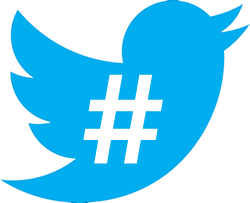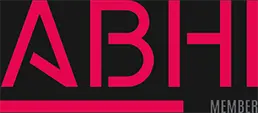 Whether you’re a new or seasoned Twitter user, you’re likely to come across confusing hashtags but these short links preceded by the sign (#) are integral to the way we communicate online, and it’s important to know how to use them.
Whether you’re a new or seasoned Twitter user, you’re likely to come across confusing hashtags but these short links preceded by the sign (#) are integral to the way we communicate online, and it’s important to know how to use them.
On Twitter, the hashtag turns any word or group of words into a searchable link. Any Twitter user can categorise or follow topics with hashtags. They make it easier to organise content and track discussion topics by grouping them into keyword categories. So, if you wanted to tweet about Breast Cancer, you could include #BreastCancer in your tweet to join that existing conversation. You can also click on a hashtag to see all the tweets that mention it in real time, even from people you don’t follow.
Hashtags make it easier for people to monitor what’s happening in the conversation rather than having to try and guess what topics you should search for. By having a conversation on Twitter using hashtags, you also make it easy for any other Twitter users to join in and contribute to the conversation. This is how people from the healthcare industry are trying to share information and engage in conversations with as many people as possible. By being active on Twitter doctors, nurses and all other professionals working in the healthcare and pharma sectors can reach out directly to individuals from all over the world to spread knowledge and awareness on various health related topics.
How do I create a hashtag?
There is no preset list of hashtags. You can create a brand new hashtag simply by putting the hash before a series of words, and if it hasn’t been used before, then you’ve created a new hashtag. Hashtags are not an official feature of Twitter. This makes it difficult to find the origin or reason for a hashtag (particularly if it’s a weird acronym) or stop other users adopting a hashtag that’s already in use.
If you want to find out which healthcare related hashtags are already in use and which ones are most popular and trending, you should check out Hashtags.org and the Healthcare Hashtag Project. These sites will help you to discover where healthcare conversations are taking place and discover who to follow within your speciality or therapy area.
Most of the time the keywords used in the hashtag itself will give you a clue as to the subject matter of conversations taking place, for instance the hashtag #pharmacist will mainly consist of conversations around pharmacy but others like #s4pm are less obvious. Using Twitter search is often the best place to start, so in the case of #s4pm, you would do this search and Twitter will then reveal that #s4pm relates to the Society for Participatory Medicine, including the Journal of Participatory Medicine and e-Patients.net blog. If Twitter reveals very little then Hashtags.org is one of the other better websites to use also. Again the Healthcare Hashtag Project often provides some descriptive content for a particular
And what about the @ symbol?
The @ symbol does something completely different. Using @ before a person’s Twitter handle will tweet him directly, letting him know you have written to him via the @Connect tab. A hashtag will not. So if you are trying to reach someone directly, don’t use a hashtag.
25 Popular healthcare hashtags:
- #BCSM
- #biotech
- #digitalhealth
- #doctors20
- #ehr
- #eldercarechat
- #hcmmconf
- #hcr
- #hcsmca
- #hcsmeu
- #hcsmin
- #healthapps
- #healthinnovations
- #HITsm
- #Ideagoras
- #LupusChat
- #meddevice
- #meded
- #medtech
- #mhealth
- #mhsm
- #pharma
- #premeded
- #ptsafety
- #s4pm
Need help?
If you’re struggling to get to grips with Twitter and need expert help to better understand what changes you should be making to your digital strategy then get in touch.



